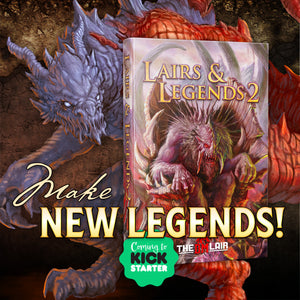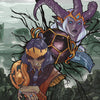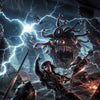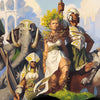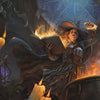7 More Dungeon Master Mistakes
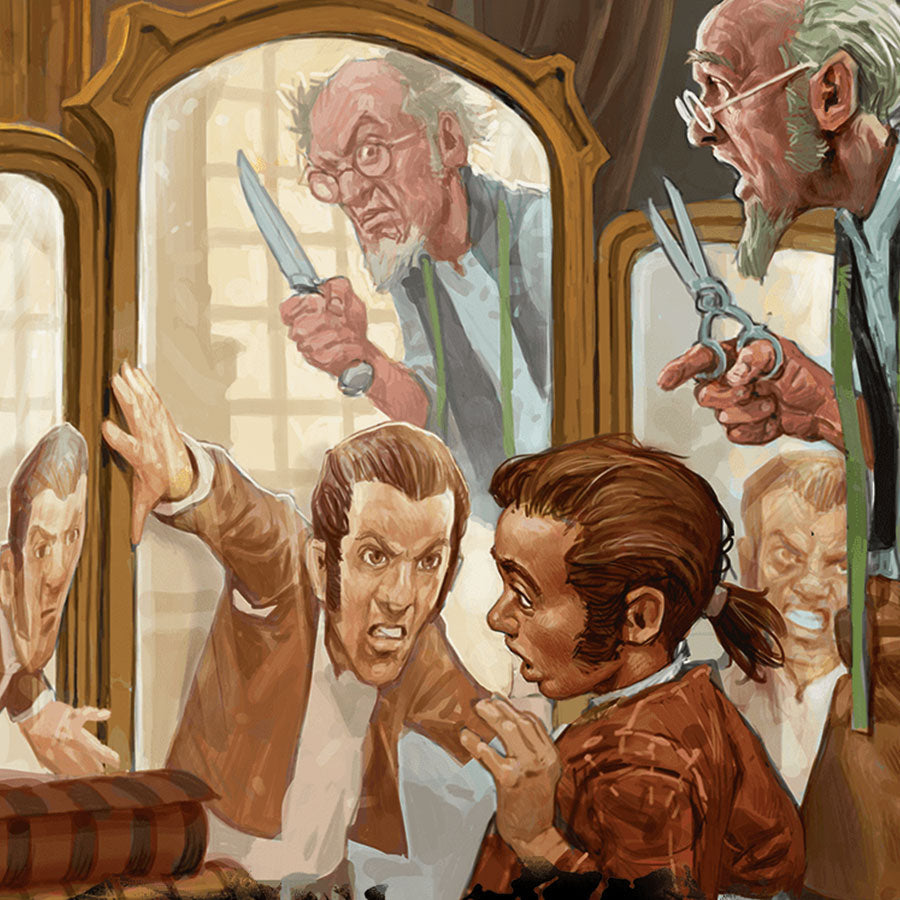
Written by Luke Hart
Every now and then, it’s healthy for a dungeon master to have a little heart-to-heart with their players. You know, sit down, open up the floor, and ask, “Hey, how can I make this game better?” Now, what you expect to hear is something like, “You’re doing great!” or “We love your game!” But sometimes—just sometimes—you get a list. A long list. And if you’re brave enough to listen, you might walk away with some real gems of insight.
Here are seven big mistakes that dungeon masters make, straight from the mouths of the players themselves.
By the way, are you a NEW GAME MASTER feeling a bit overwhelmed by everything involved with running a role-playing game? If so, the Secret Art of Game Mastery can help. Get over 100 years of GM experience distilled into practical, easy-to-read advice.
1. No Consequences, Good or Bad
Believe it or not, your players want consequences. Yeah, the rogue may literally be getting away with murder, but deep down, even he wants the world to react to what he’s done. When there are no in-game consequences—no rewards for heroism, no penalties for villainy—the game starts to feel disconnected. Give them consequences for both their failures and their successes. Rescuing the prince should lead to more than a “Thanks!” Maybe a small title. A parcel of land. A contact in court. Your players will thank you for it.
2. Lame Rewards
Following the DMG’s treasure tables to the letter? That’s a start, but your players are probably drowning in gold and +1 swords. What they really want are rewards that feel meaningful: land, favors, relationships, recognition. Give that magic sword a name, a bit of lore, maybe a glimmering blue glow when orcs are near. And don’t forget—players need something to spend their mountains of gold on. Otherwise, they’ll start hoarding like dragons with nowhere to perch.
3. Forgettable Villains
A recurring villain adds stakes, suspense, and story. But if your bad guy is always in the same room as the players, he’s not going to be recurring very long. Let villains escape. Let them taunt the players from a distance. Let them send lackeys instead of showing up in person. Make your villains clever—clever enough to survive more than one encounter. It’s a lot more fun when your players really want to kill the villain, and they have to wait three more sessions to do it.
4. Meaningless NPCs
Players actually do want to form relationships with NPCs. Not just quest givers and shopkeepers, but friends, mentors… even love interests. Don’t be afraid to let those relationships evolve over time. Let NPCs show gratitude. Let them change. Let them grow. The more the world feels like it reacts to the players, the more immersive it becomes. And yes, maybe even let the barbarian get a girlfriend. Her name is Wanda now. It’s canon.
5. No Personal Downtime or Progression
It’s not all about stabbing goblins and looting crypts. Players want to pursue personal goals, too. Maybe the fighter wants to start a guild. The rogue wants to build a thieves’ network. The wizard? He’s got lichdom on the brain. Give your players a chance to develop their own stories outside of the main quest. Create downtime systems and rewards for pursuing those goals. It’ll add layers to your campaign you never knew you needed.
6. No Secrets or Lore to Discover
Not every room should just contain monsters to fight. Sometimes a hidden compartment with an old letter is more exciting than a mimic chest. Give your players mysteries. Give them secrets. But—and this is important—make them findable. Don’t bury your lore so deep that it never gets discovered. Give them hooks and teases. Let their Passive Perception occasionally do the heavy lifting. Make your world feel alive and storied, not just filled with stabby-stabby.
7. No Foreshadowing
Big plot twists are awesome—but not if they come out of nowhere. If your villain turns out to be a secret storm giant demigod, your players should be able to look back and say, “Oh crap… the signs were there.” Drop hints. Drip lore. Show dreams. Let NPCs spread rumors. And for the love of Vecna, encourage your players to take notes so they actually remember what you foreshadowed.
100 Years of GM Experience at Your Fingertips!
Are you a NEW GAME MASTER feeling a bit overwhelmed by everything involved with running a role-playing game? Are you a VETERAN GAME MASTER looking for new tips and tricks to take your games to the next level? Look no further than the Secret Art of Game Mastery.
We at the DM Lair have distilled our CENTURY of accumulated GM experience into an easy-to-read guide of practical advice that you can immediately apply to your games! We've even included our own templates–the things that we use to prepare our ACTUAL games.
Get all three books to master your game:
- The Secret Art of Game Mastery. Contains over 100 years of GM advice distilled into an easy-to-read format. It introduces and explains the tools of the trade, scheduling, playstyle, post-game notes, getting player feedback, and more.
- The Secret Art of Preparation. Brings to your fingertips the actual templates and guides that the DM Lair team uses to prepare games, Lair Magazine, and more. Designed as a three-ring binder, it's intended for you to write directly into for your entire campaign!
- The Secret Art of Notetaking. Gives you the keys to tracking your campaign from session to session just like the DM Lair team. Designed as a three-ring binder, it's intended for you to write in and keep track of your whole campaign!
With so much knowledge and experience on its pages, The Secret Art of Game Mastery is guaranteed to become an indispensable tool for all game masters, new and veteran alike. And if that isn’t enough, the information applies to all game systems and all genres!
-
Posted in
Game Master How-To Articles


